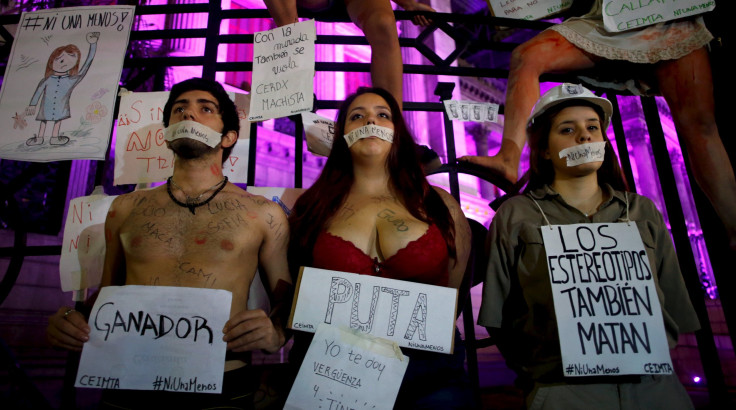
To understand violence against women in Latin America and attempts to reduce it, start with Colombia. Every four days, a Colombian woman is killed by her male partner, according to Martha Ordonez, Colombia’s Presidential Adviser on Equality for Women. Half of Colombian men admit to abusing their wives or girlfriends, according to a 2010 U.N. report. Abuse is rampant, but lower-level officials often lack the tools or the will to combat it. Over half of Colombian officials think that “what happens in privacy should be solved in privacy,” while 32 percent” don’t care” about stories of spousal abuse and 11 percent believe that woman should forgive husbands who commit violence while drunk, according to a 2014 survey carried out by Ordonez.
Despite widespread resistance towards change, Colombia has taken significant steps to address violence in recent years. In 2012, the country passed aimed at expanding prosecution rates. President Juan Manuel Santos touted the bill as a significant step saying that “There is a stricter law now so the person who maltreats his family should think twice.” Lawmakers passed even more far-reaching “hate crime” law on June 2, 2015 that adds additional punishments to perpetrators of gender-based violence. If convicted under the law, criminals could receive as much as 50 years of enhancements on their sentences.
The hate-crime law followed a number of particularly horrific attacks. The bill was named after Rosa Elvira Cely, a woman who was tortured and sexually assaulted in a park in 2012. The perpetrator of that crime was sent to prison and later found to have abused his wife and daughters. Recent legislation also follows an increasingly publicized string of acid attacks, assaults often perpetrated by romantic partners which permanently disfigure victims (stories of individual cases are heart-wrenching). In 2014, over a 100 cases of such attacks were reported.
Yet activists across Latin America don’t think that similar laws are enough to sufficiently curb the problem. Sixteen countries including Argentina, Bolivia, Colombia, and others have passed “femicide” laws. In Argentina, over 200 women died in cases of domestic violence, making advocates question if news laws are an effective deterrent. In Bolivia, only 0.02 percent of domestic violences complaints were acted upon.
Over 200,000 people protested that type of and ineffectiveness in Argentina on Wednesday, June 3rd, demanding sweeping reforms to and serious action to rewiring conservative or apathetic attitudes towards gender violence. Smaller marches were heals in other Latin American countries, including Chile and Paraguay. Rallying under the slogan Ni Una Menos (not one less female), the the marches received an outpour of support on social media.
“Enough with femicides. From Barcelona we call on all Argentinians to scream good and loud #NiUnaMenos,” wrote Lionel Messi, an Argentinian soccer star.
On Twitter, President President Cristina Fernández de Kirchner denounced what she called "a culture of devastation against feminism," and “some judges who shouldn’t even be spoken about,” citing a case where an egregious assailant received only a six month sentence.
How can gender violence be curbed, if harsher laws haven’t been working? The path forward isn’t completely clear. As one might expect, advocates demand reforms of the justice system prosecutor accountability to expedited restraining orders to exceptions in abortion laws for victims of rape (which do not exist in Chile, Paraguay, or Argentina). Yet one theme stands out in proposals put forward by activists: laws are not enough. In Argentina, Ni Una Menos organizers put forward dozens of demands. Here are a few of the proposals that are not specific to Argentina.
Increase national, state, and municipal budgets for combating domestic violence and aiding victims.
Fund a massive information campaign to educate the public and inform them of their rights under existing laws.
Increased funding of sex education programs.
- Provide domestic violence shelters in each province.
© 2025 Latin Times. All rights reserved. Do not reproduce without permission.




